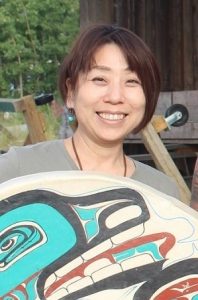Staff Page / Researcher
IIZUKA, Noriko

- Research Departments・Position
- Environmental Coexistence
Researcher - Area
- Social innovation, environmental education, area studies
- Research Interests / Keywords
- ・Reconstruction of local communities by performance
・Community understanding by ”learning community” in performance
・Cultural Plurarity and Environmental Education - Contact
- noriko@cseas.kyoto-u.ac.jp
IIZUKA, Noriko
Overview
Reconstruction of local communities by performance
Re-representing their own traditional culture and symbols through theater and stage performances, and reorganizing communities by example of the indigenous community, Cordyriera district in the Philippines and Tak River Tringit in British Columbia, Canada Conduct a survey. In what relationship are they practiced with outsiders, and how such practices are positioned in their lives and as educational activities for the next generation? In a globalizing world, research is conducted on how environmental views supported by mutual assistance, shared natural resources, sharing symbols, etc. are recaptured by performance to affect the community.
Community understanding by ”learning community” in performance
Japanese citizens and children will work together with researchers and performers to “replay” using their performances as a community that consists of diverse factors such as culture, society and economic activities. From the view point of social constitution that “the reality is created in the relationship”, “the community of learning” reconstructs the “regional community”, the effect and significance of the learner’s meaning to other areas, We will also explore the learning methodology. And we will consider empirically the continuous and discontinuous of the understanding of “area”.
Cultural Plurarity and Environmental Education
Conduct practical joint research that recaptures environmental education not from institutional frameworks such as international treaties, but from the pluralism of the work of diverse regional communities. Specifically, the methodology and significance of environmental education “understanding as one’s own experience” the pluralism of deep relationships between people living in various regions such as Native Canadians, African hunter-gatherers, Mongolian nomads, etc. Work in collaboration with other researchers and performers.